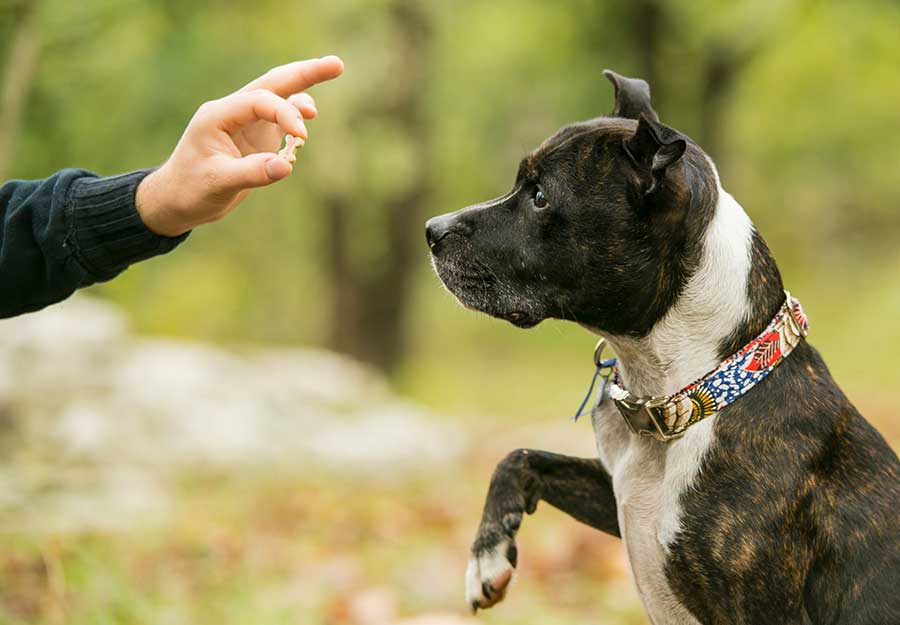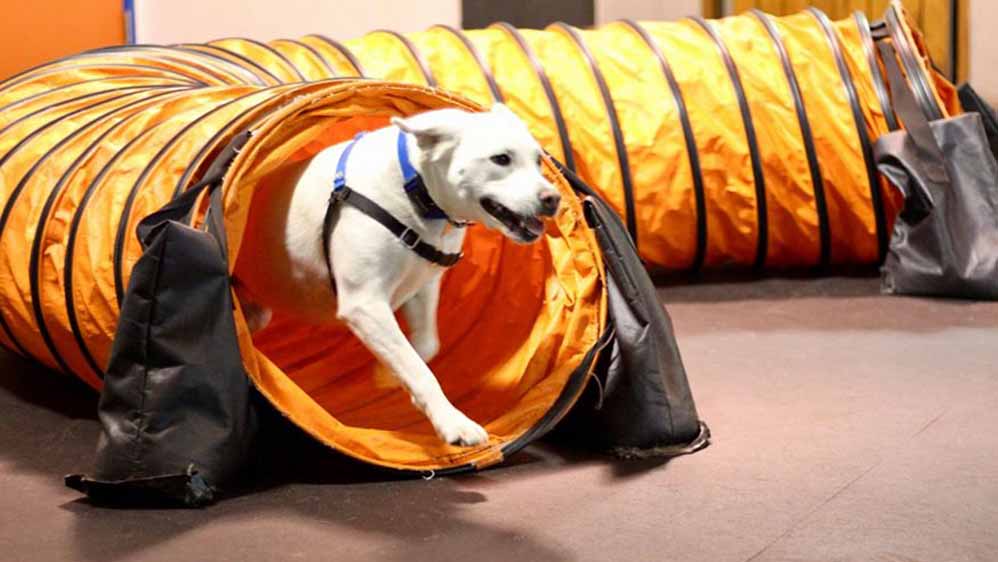Elevate Your Skills with Local Dog Training Charlotte Programs
Elevate Your Skills with Local Dog Training Charlotte Programs
Blog Article
Unlock Your Pet's Prospective: Proven Pet Dog Training Techniques for Success
Effective dog training is a nuanced procedure that hinges on comprehending canine habits and utilizing scientifically backed approaches. By integrating favorable reinforcement, developing clear commands, and prioritizing socializing, canine proprietors can grow an effective connection with their animals.
Recognizing Pet Habits
Understanding pet dog habits is crucial for efficient training and cultivating a positive relationship in between pet dogs and their proprietors. A comprehensive understanding of canine body movement, vocalizations, and social interactions is important for acknowledging their needs and emotions. Pet dogs connect largely with non-verbal cues; as an example, a wagging tail may suggest exhilaration, while pinned ears can signify anxiety or entry.

In addition, ecological elements play a substantial role in forming a pet dog's habits. Changes in regular, new environments, or the existence of unfamiliar individuals can cause stress and anxiety or anxiety in canines. Identifying these triggers enables owners to minimize adverse reactions and develop proper training methods.
Eventually, a deep understanding of pet behavior lays the structure for effective training approaches, enhancing both habits and the general bond in between the canine and its proprietor. dog training charlotte nc. This expertise is crucial for fostering a well-adjusted, delighted canine friend
Favorable Reinforcement Strategies
Reliable training depends heavily on favorable reinforcement techniques, which have been revealed to yield considerable lead to shaping wanted actions in pets. This strategy entails awarding a pet for exhibiting certain habits, consequently boosting the likelihood that these actions will be duplicated. Rewards can take various kinds, consisting of deals with, appreciation, playthings, or playtime, depending upon what inspires the private dog.

It is necessary to gradually eliminate incentives as the canine finds out the habits, transitioning to intermittent support. This method keeps the habits in time while preventing dependency on continuous benefits. By concentrating on positive reinforcement, instructors can grow a trusting relationship with their dogs, promoting a cooperative and healthy and balanced training atmosphere that boosts overall obedience and efficiency.
Establishing Regular Commands
A basic aspect of successful pet training is the facility of constant commands. Consistency in commands is essential for reliable interaction between the trainer and the pet dog. When commands are uniform, dogs find out to connect certain words with preferred habits, which increases the training procedure and enhances understanding.
To establish constant commands, it is essential that all relative utilize the very same terms and gestures. For instance, if a single person utilizes "sit" while an additional states right here "sit down," it can develop complication for the pet dog. Select clear, unique words for commands and ensure everybody involved in the pet's training follows these selections.
Enhance commands via frequent technique, making certain that the dog obtains adequate chances to respond properly. When a canine successfully follows a command, immediate positive support needs to comply with.
Finally, be patient. Establishing regular commands requires time and effort. With commitment and clarity, you will aid your pet develop a solid understanding of expectations, ultimately bring about a well-behaved friend.
Socialization and Direct Exposure
Interacting socially a pet is necessary for promoting a well-adjusted and confident companion. This procedure entails subjecting your pet to a selection of atmospheres, people, and other animals to develop their social skills and versatility. Early socializing, ideally in between the ages of 3 to fourteen weeks, is essential, as it lays the groundwork for a pet dog's future actions.
Throughout socialization, objective to supply favorable experiences try these out in different setups, such as parks, busy streets, and homes with various other family pets. Present your dog to different stimuli, consisting of noises, views, and smells, guaranteeing that each experience is gratifying. This direct exposure helps alleviate worry and anxiety, leading the way for an extra durable dog.
Participating in regulated team play sessions with various other dogs can additionally enhance social skills, showing your animal suitable communications and boundaries. Always monitor your canine's convenience degree during these experiences, gradually enhancing exposure as their self-confidence grows. Bear in mind, the goal is to develop an all-around family pet that prospers in diverse circumstances, promoting a harmonious relationship with both humans and various other pets. Focusing on socializing will dramatically contribute to your canine's overall joy and habits throughout their life.
Overcoming Common Educating Obstacles

One more constant problem is interruption. Dogs may struggle to focus in hectic or unfamiliar settings. Slowly desensitize your pet dog to diversions by starting training in a peaceful environment and slowly introducing even more stimuli as they become efficient (dog training near me). Positive reinforcement strategies, such as treats and appreciation, can preserve motivation and emphasis.
Furthermore, behavioral issues like jumping or too much barking can become frustrating. Address these by educating different actions, such as sitting calmly when welcoming visitors. Uniformity and persistence are crucial; reinforce desired habits consistently and avoid scolding, which can cause confusion.
Last but not least, acknowledge that each pet is unique, and training timelines might differ. Dressmaker your approach to your canine's individual requirements, and seek specialist support if necessary. With determination and the appropriate techniques, conquering these difficulties can result in a well-trained, pleased canine friend.
Conclusion
In verdict, opening a pet dog's potential requires a comprehensive strategy that incorporates an understanding of canine behavior, the application of favorable reinforcement methods, and the establishment of regular commands. Early socialization and direct exposure to diverse environments better improve a pet dog's versatility and confidence. By attending to usual training obstacles with tailored approaches and persistence, a cooperative and unified relationship between canine and handler can be promoted, inevitably leading to a mannerly companion qualified of thriving in numerous situations.
Reliable pet training is a nuanced process that pivots on understanding canine actions and using scientifically backed strategies.Comprehending pet behavior is crucial for reliable training and fostering a positive connection between dogs article and their proprietors.Reliable training relies heavily on positive reinforcement strategies, which have been shown to produce significant results in shaping wanted actions in dogs. When commands are uniform, dogs learn to associate specific words with preferred behaviors, which increases the training process and boosts understanding.
In verdict, unlocking a canine's possible necessitates a detailed technique that includes an understanding of canine habits, the application of favorable support methods, and the facility of consistent commands.
Report this page